Team of Caring Professionals
We are a team of caring and compassionate professionals working together to provide the best possible care for you and your loved ones
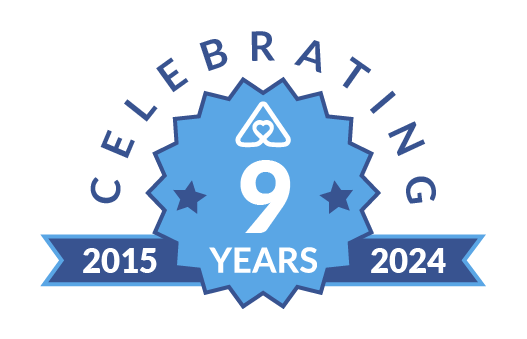
Always Best Care combines national strength and standards with local accessibility and personal service. We are the solution to all your home care needs.
Having trouble navigating senior living communities? We can help identify communities that could be right for you, and arrange for private, escorted tours for you to meet the staff and residents, and see the facilities first-hand. Having surgery and need post op support? We can send a caregiver to fit your schedule.
Need help driving to appointments and running errands? Let us provide that extra peace of mind. We can create a plan to support your independence. We are local experts in senior care, and we’re ready to help you age with dignity.
We have strong relationships with area hospitals, social workers, senior communities and senior resources throughout the area. Our caregivers are thoroughly screened, bonded and insured to provide the safest and highest level of care. There’s no charge for a free Care Consultation or for assisted living placement services.
Call us today!
*Because Always Best Care is compensated by our contracted assisted living communities, we are happy to provide our senior housing and assisted living referral services at no charge to you.

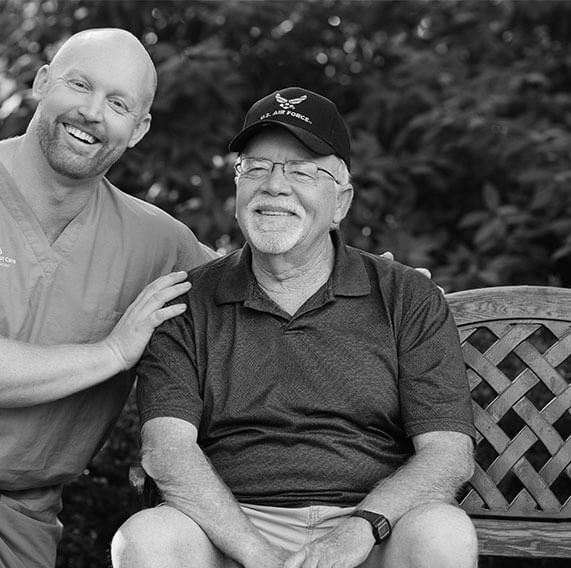
We match our clients with the most appropriate living options

We are a team of caring and compassionate professionals working together to provide the best possible care for you and your loved ones
We have worked with thousands of seniors and their families across the U.S. and Canada, providing the best service each step of the way
Our team of professional caregivers has a proven track record of providing expert care to seniors and people with special needs
We help people with specific needs maintain a safe, independent, and dignified lifestyle with in-home care, senior community referral services and special care services
Discover our services to find the right care solution for you and your loved ones
Expert care services, delivered in the comfort of your home
Referral services designed to help you find the right senior living community
Specialized health monitoring services, powered by advanced healthcare technology
Helping veterans navigate the financing options available from the VA to receive the best care possible
Your local Always Best Care team helps families throughout Shreveport and the surrounding areas


ALWAYS THERE FOR YOU ALWAYS BEST CARE
“I absolutely love working for this company. They offer the upmost support and compassion!”
“Grateful for our Team! All of you bring something unique to our work experience. Together”
“Very professional & great people that work here I’m a caregiver for ABC & love”
“I am a current client of this provider I like them. I call and get an”
“I am a current client of this provider I like the caregiver that we have, Brianna;”
“I am a past client of this provider I like that they have the personal touch. It”
“I am a current client of this provider They could train their caregivers on expectations and”
“I am a past client of this provider They were very responsive, and the caregiver was”
“Licensed and Certified Caregivers – most awarded and recognized Home Healthcare agency in Shreveport/Bossier!”
“I’m giving a 5 star rating simply because, I saw a lady on yesterday who”
“The best in the business.”
“I am a past client of this provider I had trouble with some caregivers, but they”
“I am a current client of this provider They are the 3rd company in this area”
“Thank you so much for the care provided for my mother!!”
“We had family at Willis Knighton and Always Best Care came through for us. They”
“The staff’s we’re , welcoming and very nice when I arrived Went for my interview”
“This by far is the best company for seniors care services. I highly recommend it”
“Very friendly staff.”
“Thank you so much for the care provided for my mother!!”
“I am a current client of this provider The care helps us through the day. They are”
“This company is wonderful to work for flexiable and will work woth other job if”
“I am a current client of this provider They allow my family to not have to”
“This company has been great. The staff are all so sweet. The office girls are”
“Angela and Beth were an ANGELS .”
“Angela was my instructor for the training class and she was awesome very helpful and”
“I absolutely love working for this company. They offer the upmost support and compassion!”
“Grateful for our Team! All of you bring something unique to our work experience. Together you make this team remarkable. Thank you for showing up with compassion and spirited tenacity!”
“Very professional & great people that work here I’m a caregiver for ABC & love it as well !”
“I am a current client of this provider I like them. I call and get an answer, and they hire the people I ask them to hire. She has Alzheimer’s, and she couldn’t function without it.”
“I am a current client of this provider I like the caregiver that we have, Brianna; she is wonderful. I can get away for the whole day and do what I want to do.”
“I am a past client of this provider I like that they have the personal touch. It had a relief on the children, and we knew they were in good hands, giving my dad relief.”
“I am a current client of this provider They could train their caregivers on expectations and make it stick. Right now, it is the best. It frees my time somewhat and gives me a break.”
“I am a past client of this provider They were very responsive, and the caregiver was wonderful. They helped me navigate the process, and when I called, they were helpful. They were attentive to his needs, kind, and knowledgeable.”
“Licensed and Certified Caregivers – most awarded and recognized Home Healthcare agency in Shreveport/Bossier!”
“I’m giving a 5 star rating simply because, I saw a lady on yesterday who took care of my mom when she was at another agency as the administrator, and she told me that she was now here, Deann is by far the most honest, reliable, professional person I have ever met in home care.. I will definitely recommend this company simply because of her and what she stands for, you have a real jewel there with you .”
“The best in the business.”
“I am a past client of this provider I had trouble with some caregivers, but they end up sending someone else, no issues after. Caregiver did a good job.”
“I am a current client of this provider They are the 3rd company in this area that I have employed. Their people have 8-hour shifts during the week and 12 on the weekends, their caregivers are fresh. Most of the time, I can walk out of the house and not worry. I like that the owner was a man like me who couldn’t find caregivers for his father, so I thought he would understand me. I was looking for someone in the area who had the same concept of elder care.”
“Thank you so much for the care provided for my mother!!”
“We had family at Willis Knighton and Always Best Care came through for us. They helped us ensure our family received the best possible care that they deserved. Thank you ABC!”
“The staff’s we’re , welcoming and very nice when I arrived Went for my interview today was a little nervous and scared, but angela made the interview felt good .”
“This by far is the best company for seniors care services. I highly recommend it if you are looking for care for your elderly love one.”
“Very friendly staff.”
“Thank you so much for the care provided for my mother!!”
“I am a current client of this provider The care helps us through the day. They are dependable, and the caregiver is caring.”
“This company is wonderful to work for flexiable and will work woth other job if u have one the staff is also cool!!!”
“I am a current client of this provider They allow my family to not have to care for me. They’re friendly and come in willing to work for me.”
“This company has been great. The staff are all so sweet. The office girls are so helpful.”
“Angela and Beth were an ANGELS .”
“Angela was my instructor for the training class and she was awesome very helpful and very sweet”
Discover our porfolio of technology and special care services, designed to cater to the needs of you and your loved ones.
A complimentary telephone reassurance program that provides companionship to seniors and disabled adults
A computerized balance assessment tool that provides an objective, accurate, and reliable fall risk assessment
Monitoring and reporting of vital health signs and 24/7 access to a clinical call center
The Personal Emergency Response alert system ensures a timely response in case of a medical emergency
Always Best Care helps seniors and their family through the entire process. Our care coordinators are local and have in-depth knowledge of our senior living partners and services.


We are very proud of our awards and recognitions of excellence in the senior care industry
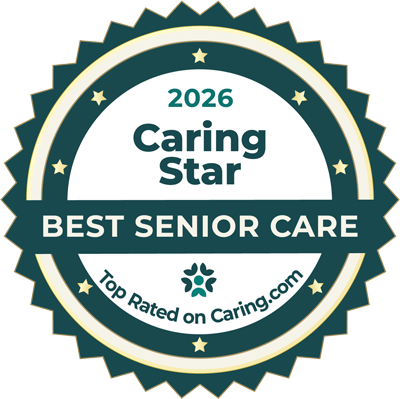
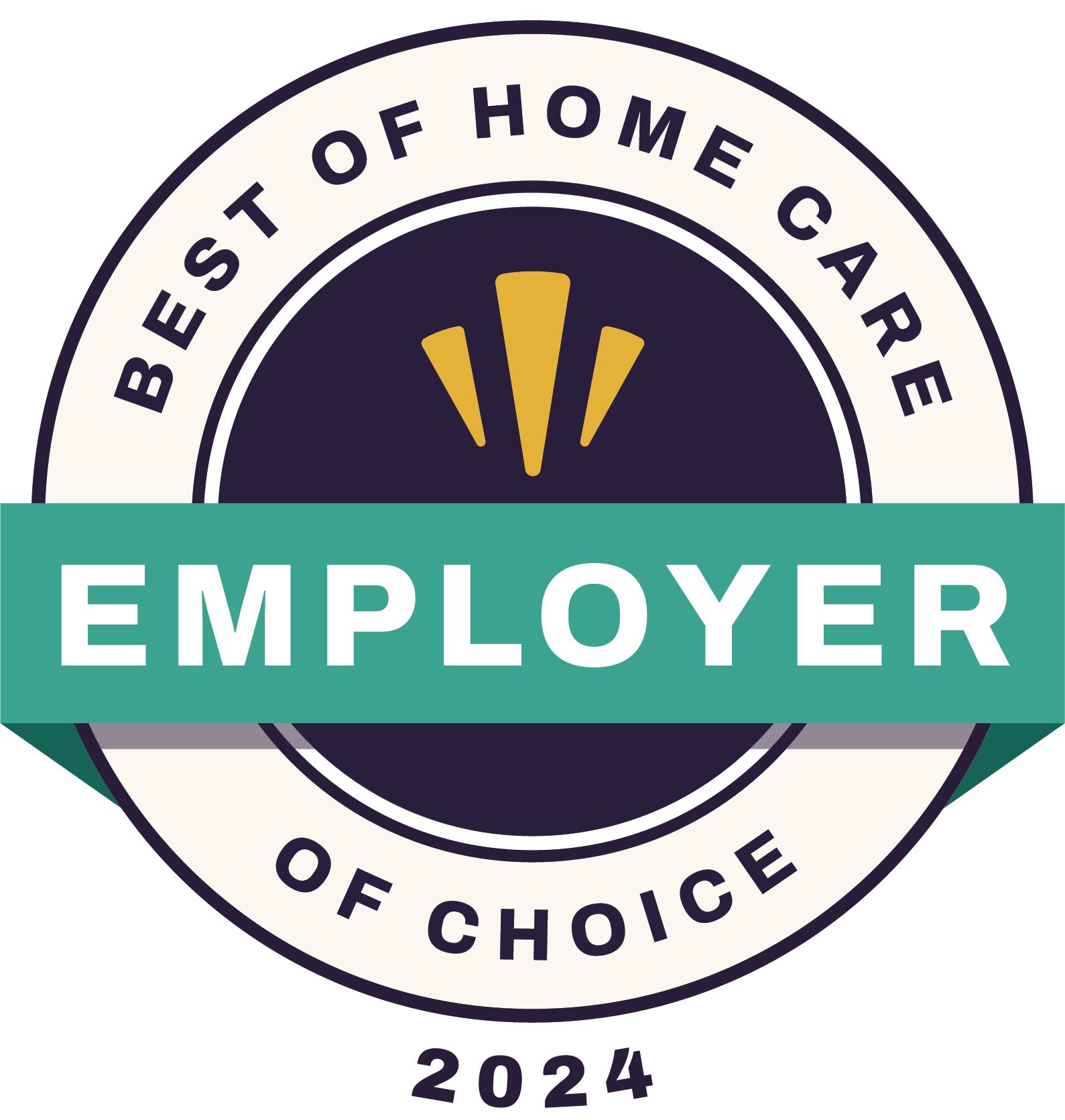
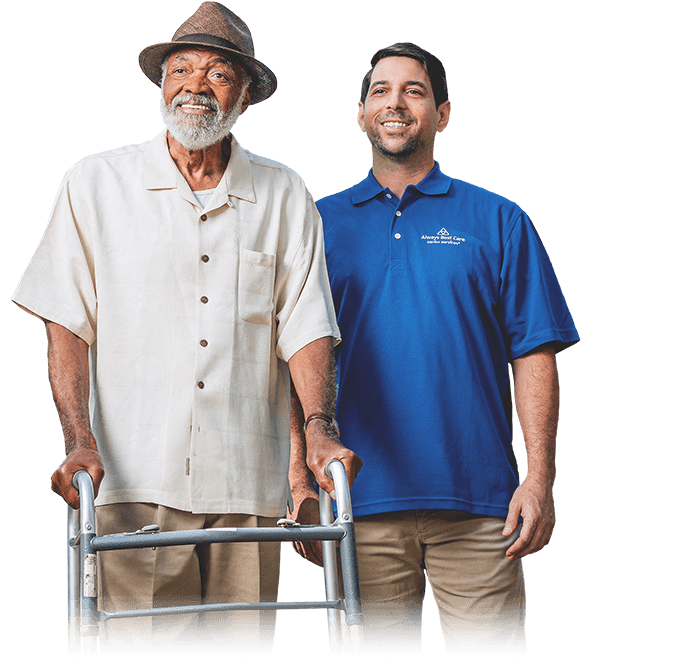
Our passion for helping people maintain a safe, independent and dignified lifestyle represents the strong foundation of
Always Best Care
Our employees are our own – not contractors. Caregivers are thoroughly screened, trained and insured. We are dedicated to exceeding your expectations…always.
Whether you are an experienced caregiver or looking to launch your career, contact us today to learn about opportunities that may be available in your area


It’s becoming more and more common for families to live far apart from each other, and leaving an elderly relative alone at home can be a major source of anxiety if you’re not nearby. Always Best Care provides the reassurance you need that your loved ones are safe and happy, with a compassionate caregiver available in case of an emergency. We’ll help them handle their daily tasks so that you can manage your own life with confidence and peace of mind. In addition, home care is often considered a healthier and more affordable option for families when compared to long-term nursing facilities.
Choosing an in-home senior care provider can be a daunting task. However, there are a few guidelines to keep in mind. First, ask your friends and family for recommendations. If you’re unable to get any suggestions, search for local and state organizations that recognize the best providers in the industry. Doing so can help narrow down a shortlist of home care agencies. Next, set up meetings with your top choices and ensure that they meet your criteria. Don’t forget to ask your senior for their opinion, too. Doing so will help you make an informed home care decision.
When hiring an in-home care provider, it’s important to ensure that they are insured to protect you and your loved one. Always Best Care not only provides our clients with insurance coverage but also Worker’s Compensation. That way, in the unlikely event that an accident occurs while a caregiver is working in your loved one’s home, you are protected against any claims or damages. These protections not only benefit you and your loved one, but also directly benefit our caregivers, enabling us to attract some of the most skilled and compassionate individuals for Home Care in Shreveport.
In the mid-90s, Always Best Care founder Michael Newman grew frustrated by the lack of resources available for seniors in his community. That frustration helped him shape a vision: to create a home care company that would provide trusted care, compassionate support, and professional advice for seniors and their loved ones. In 1996, Michael channeled his frustration into founding Always Best Care, which has since become one of the nation’s leading providers of in-home care for seniors. Today, people with passion continue to make Always Best Care what it is today. While times may change, our company’s commitment to compassionate home care will always remain the same.
To provide the best home care in Shreveport, we believe that it’s crucial for seniors and their caregivers to build a strong relationship that is fortified with trust. Without it, all parties can suffer. However, at Always Best Care, our caregivers are allowed requested vacations. There may also be times when caregivers become ill. In such cases, a substitute caregiver takes responsibility for your loved one’s care. We inform the substitute caregiver about all your loved one’s likes and dislikes to minimize disruptions. If additional care is required in the morning, afternoon, and evening, we will do our best to accommodate.
We understand that many seniors can lead mostly independent lives, but occasionally they may need assistance. At Always Best Care, we’re thrilled when we can schedule a caregiver in a very short turnaround. That’s why we’re happy to offer part-time in-home care for seniors in Shreveport. Our team of compassionate caregivers can be `available to assist your senior loved one morning, noon, and night.
Our home care providers in Shreveport can assist with a wide range of services to help your senior live a fulfilling, independent life at home. Some of our most requested home care services include the following:
• Light Housekeeping
• Medication Reminders
• Community Activity Escorts
• Companionship
• Meal Prep
• Nutrition Monitoring
• Incontinence Care
• Transportation and Errand Running
• Dressing and Grooming
Contact our Always Best Care office today to learn more about the additional home care services we offer.
We believe that safety is one of the most important aspects of home care in Shreveport. As such, we train our caregivers to assess your senior loved one’s home to identify any potential hazards that could lead to accidents. Before providing in-home care services, we will perform a safety assessment of your loved one’s property to identify ways to make their home safer. This may include introducing grab rails in hallways or showers or making other small changes. To ensure ongoing safety measures are met, your caregiver will continue to monitor your senior’s mobility and recommend any necessary equipment or technology to make their life easier and safer.
Yes. We understand that, with time, a senior’s home care needs can change. If they do, your Care Coordinator will be there to re-evaluate and adjust your non-medical home care services in Shreveport as needed.
Our senior home care providers in Shreveport are dedicated to delivering compassionate, exceptional care. That dedication often translates to specialized training and preferred areas of focus. Please don’t hesitate to inform us of any unique health needs or requirements your loved one has during your care consultation with Always Best Care.
Explore the latest insights, trends, and tips from the home care and caregiving industry
We have partnered with the best groups and institutions to provide the best care for you.